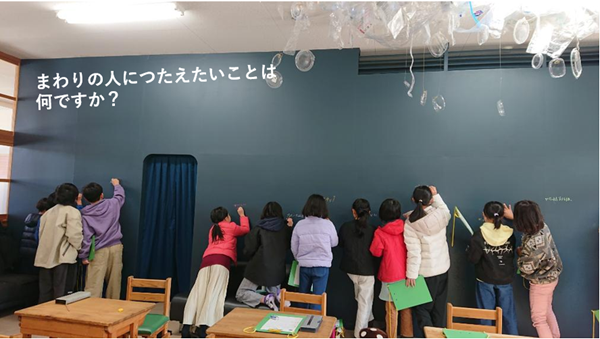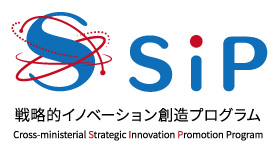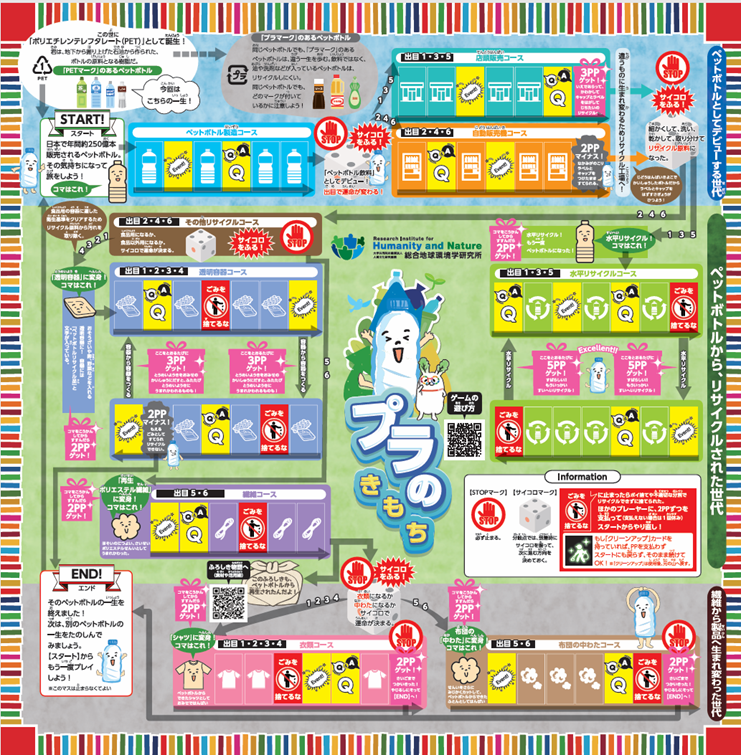A2-03 Action research on behavioral change of consumers for the construction of appropriate resource circulation systems for plastics
Principal Investigator
ASARI Misuzu (Research institute for Humanity and Nature)
Research and Development Overview
To achieve a plastic resource circulation of the diverse plastic products that takes into consideration the environment and SDGs, collaboration among stakeholders across the value chain and changes in consumer awareness and behavior are essential.
This research project aims to investigate consumer awareness and behavior regarding plastic products, and to develop methods for identifying optimal measures for different categories of plastic products. This will be achieved by organizing environmental and SDGs-related information to be provided to consumers through information platforms such as PLA-NETJ (Plastic Networking Environmental Transformation Japan) developed within this SIP and other initiatives. Additionally, we will set up model regions and stores to analyze and model behavior changes among stakeholders across the value chain, mainly consumers and retailers. Furthermore, we develop educational programs related to the circular economy, aiming to contribute to the promotion of behavior change and the fostering of momentum among consumers, in a way that can also be applied to areas beyond plastics.
Progress and Achievements
Environmental Education Program "Pla School"
An environmental learning facility and program specializing in plastics has been opened within the Kyoto Satoyama SDGs Lab " Kotos ", which uses an abandoned school ( Release
). This is an original exhibit and program where you can learn about the history of plastic resources, the various types, issues, and circulation systems. In honor of the abandoned school, the program, which resembles various subjects, includes not only classroom lessons but also excitement and dialogue. The aim is to provide a place and opportunity for people to learn about the importance of plastic resources, the significance of recycling, and the latest trends, leading to changes in awareness and behavior. Plastics are used by all kinds of people in a variety of situations. For this reason, programs can be customized according to the target participants, from elementary school students to businesspeople and seniors, and for people with and without knowledge or interest. In addition to reflecting the research results of the research members, this program also receives information and exhibits from other groups in the SIP.

After experiencing the program, elementary school students wrote down what they would like to share with the people around them.
Completion of the "Plastic Feelings Game" Furoshiki and its promotion at the EXPO2025
We have developed a board game that traces the life cycle of plastic as an educational tool to encourage people to take plastic resource circulation as a personal concern and to promote changes in their awareness and behavior. It was completed after repeated discussions with educators, experts on the plastic life cycle, and businesspeople. Version 1 focuses on PET bottles and is finished as a furoshiki made from 100% recycled PET bottle resin. With the aim of promoting Pla-NETJ concept to consumers, we have utilized digglue Inc.'s digital platform "CiReta!", which allows users to access information on materials, environmental and SDGs evaluation indicators, and appropriate use and circulation via QR codes.
Hundreds of people, from elementary school children to adults, have participated so far, and the positive response has been encouraging.
This tool has been recognized for its uniqueness and advancedness, and an opportunity to experience it will be provided in late September 2025 at the indoor exhibition hall of EXPO Messe at the EXPO2025. In addition, we plan to lend it out to schools and educational facilities, while also conducting surveys on changes in awareness.
Development and demonstration of an educational program in collaboration with MUJI and an elementary school
As a model of in-depth education in which the local community collaborates with school education, an educational program was developed in collaboration with MUJI (Ryohin Keikaku Co., Ltd.) and Kyoto City Anshu Elementary School. Targeting fifth graders, Muji staff members, in addition to university professors and graduate students, taught classes and acted as mentors, and the program taught students about the life cycle of products and sustainable consumption. Students actually visited MUJI stores, personally identified products that were considerate of resource circulation, and created posters to encourage behavioral change in adults.
Modeling consumer awareness and behavior
We are developing methods to encourage consumer behavior change by promoting environmental and SDGs information about products that use recycled plastics. In collaboration with MUJI, we conducted an awareness survey on store collection and analyzed consumer purchasing behavior when carbon footprints were presented. We also developed a method to calculate environmental and SDGs indicators and evaluated five environmental impact items and eight social impact items for multiple products.
As a result of these efforts, the following is becoming clear. We are currently working on publishing these findings as papers and at the same time organizing the information in an easy-to-understand book.
- Consumers will change their behavior when they are presented with an appropriate amount of information about the significance of resource circulation, etc.
- As there are many consumers who are sensitive to human rights issues, it would be meaningful to present that recycled plastics are excellent at respecting human rights in terms of environmental and SDGs indicators.
- Depending on the product, some plastics are suitable for recycling and others are not, so it is very meaningful to consider this on a product-by-product basis.


